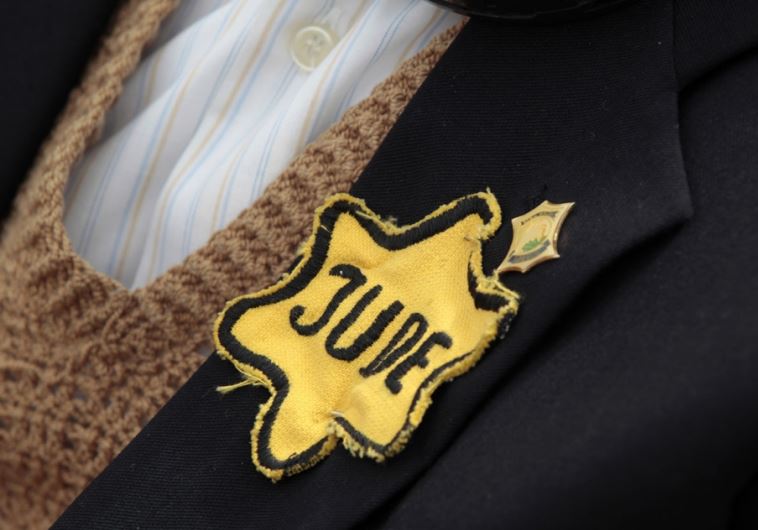Holocaust denial in Iran can be tackled by media, say experts
US Holocaust Memorial Museum holds briefing to discuss Iranian cartoon contest on the Shoah.
 A Holocaust survivor wears a yellow star during a ceremony at the Yad Vashem Holocaust Memorial in Jerusalem
A Holocaust survivor wears a yellow star during a ceremony at the Yad Vashem Holocaust Memorial in Jerusalem